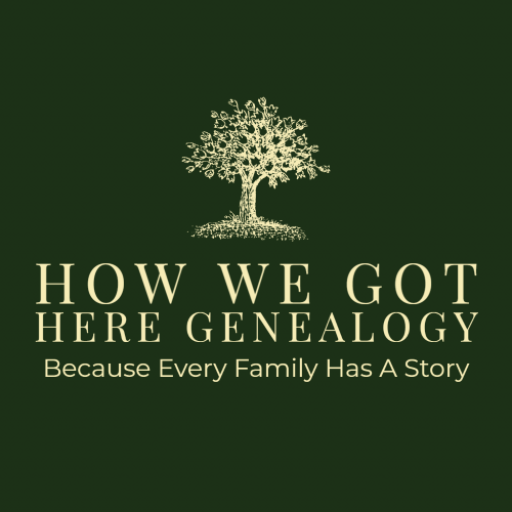Have you ever stood in a cemetery, looked down at a headstone, and really thought about what you’re seeing?
There’s a name. A birth date. A death date. And between those two numbers? A small, unassuming line. A dash.
That little dash represents everything. Every laugh, every struggle, every Sunday dinner, every argument, every quiet moment of joy. It’s the whole life compressed into a tiny horizontal mark. And as genealogists and family historians, that dash is precisely what we’re chasing: yet sometimes we get so caught up in the dates that we forget about the life in between.
I’ve been thinking about this a lot lately. More than usual, actually.
A Wake-Up Call (Literally)
On January 5th, I had a heart attack.
I’m not going to dwell on the medical details here: I’ve shared more in a couple of YouTube videos for those who want the full story. But the short version is this: heart attack, hospital, recovery, and then a complication called pericarditis that reminded me healing isn’t a straight line.
Lying in a hospital bed gives you a particular kind of clarity. When your own mortality stops being an abstract concept and becomes very, very real, you start thinking differently about time. About legacy. About all those stories you meant to record “someday.”

Here’s the thing that hit me hardest: I spend my professional life helping people uncover and preserve family stories. I research ancestors, track down records, and piece together the narratives of people who lived decades or centuries ago. But in that hospital bed, I realised something uncomfortable.
I am not just a researcher of history. I am a subject of it.
And so are you.
The Dash Is the Story
The concept of “the dash” comes from a poem by Linda Ellis, and it’s become something of a touchstone for me during this recovery. The poem asks us to consider: when people look back at our lives, will they focus on the dates: or will they remember how we lived the time in between?
For family history research, this idea is transformative.
Think about your own research for a moment. How many hours have you spent hunting for birth certificates, marriage records, and death dates? Those documents are essential: don’t get me wrong. They’re the scaffolding we build our family trees on. But they’re not the story.
The story is your great-grandmother’s stubbornness that got passed down through four generations. It’s the reason your grandfather always hummed the same tune while washing dishes. It’s the family recipe that nobody actually follows correctly anymore but everyone swears is “exactly how Nan made it.”
The dates tell us when someone existed. The dash tells us how they lived.
And here’s where it gets personal: one day, you will be the ancestor someone is researching. Your dash is being written right now, today, in the choices you make and the stories you tell (or don’t tell).
We Are the Living Records

This is the part that my health scare really drove home. As genealogists and family historians, we often position ourselves as observers: people who look backwards, sifting through records and piecing together puzzles. But we’re not outside of history. We’re swimming in it.
The stories you remember from your parents and grandparents? You might be the only person alive who still knows them. That makes you a living archive. And archives need to be documented before they’re lost.
I’ve been doing this work professionally through How We Got Here Genealogy Services, and I’ve seen what happens when families wait too long. The “I’ll record Grandma’s stories next summer” that becomes “I wish I’d recorded Grandma’s stories.” The photographs with no names on the back because “everyone knows who that is”: until everyone who knew passes away.
Recovery from a heart attack involves a lot of sitting around. A lot of time to think. And what I kept coming back to was this: the questions we don’t ask today become the mysteries our descendants can’t solve tomorrow.
What This Means for Your Family History Research
So, what do we do with this perspective? How does “the dash” actually change how we approach legacy projects and genealogy?
Here are the practical takeaways I’ve been mulling over:
1. Capture Stories Now, Not Later
Stop waiting for the “perfect time” to sit down with your relatives and record their memories. The perfect time doesn’t exist. Pull out your phone, hit record, and ask a question. Even five minutes of someone talking about their childhood is five minutes of irreplaceable family history.
2. Document Yourself, Too
This one feels awkward, I know. We’re taught not to be self-centred. But your future descendants will want to know about you. Write down your memories. Record yourself telling family stories. Keep a journal. You are part of the historical record: act like it.
3. Ask the Hard Questions While You Can
Don’t avoid the complicated family stories because they’re uncomfortable. Those are often the most important ones. The feuds, the secrets, the “we don’t talk about that” topics: they shaped your family just as much as the happier tales.
4. Think Small and Doable
One thing I’ve learned during recovery is that life doesn’t happen in big, dramatic leaps. It’s small steps. The same is true for legacy projects. You don’t need to write a 300-page family history book next week. Start with one story. One photograph identified. One conversation recorded.

5. Share What You’ve Found
Family history research isn’t meant to live in a filing cabinet. Share your discoveries with the people who will care about them. Create a simple family tree poster. Put together a photo album with captions. Write up a one-page summary of what you’ve learned about your great-grandparents. These small acts of sharing multiply the value of your research.
Watch the Full Story
I’ve shared more about this journey: the heart attack, the recovery, and the “dash” philosophy: in two YouTube videos. If you’d like to hear me talk through this in more detail (and see that I’m still kicking), here they are:
- “The Dash”: https://youtu.be/AI8GereVvOo
- “The Sequel” (on recovery and pericarditis): https://youtu.be/91qVEohskuw
The sequel video especially touches on something important: recovery isn’t linear. Neither is family history research, honestly. We hit brick walls. We get discouraged. We take breaks. And then we come back and keep going, because the stories matter.
Your Dash Is Being Written Right Now
Here’s my challenge to you, whether you’re deep into your family history research or just getting started:
Stop thinking of yourself as only a researcher. You are also the research.
The stories you carry, the memories you hold, the experiences you’re living through right now: all of that is the content of your dash. And the work you do to uncover your ancestors’ dashes is how you honour theirs.
I’m not going to pretend that a health scare gave me some magical enlightenment. Mostly, it gave me a lot of time to think and a renewed appreciation for pacing myself. But it also clarified something I already knew intellectually but hadn’t fully felt:
Every family has a story. And the people best positioned to capture those stories are the ones living them right now.
That’s you. That’s me. That’s all of us, filling in our dashes one day at a time.
So don’t wait. Pick up the phone and call that relative. Pull out the old photo albums and start labelling. Record a voice memo about your own childhood. The dash between your dates is being written whether you document it or not: but your descendants will be grateful if you do.
This post was written by Brian Nash, Chief Genealogist and Owner of How We Got Here Genealogy Services. For more tips on preserving your family’s legacy, visit our blog or explore resources like our guide on using AI as a tool in genealogy research.
This blog post was written with the assistance of AI technology and reviewed and edited by a human for accuracy and tone.











